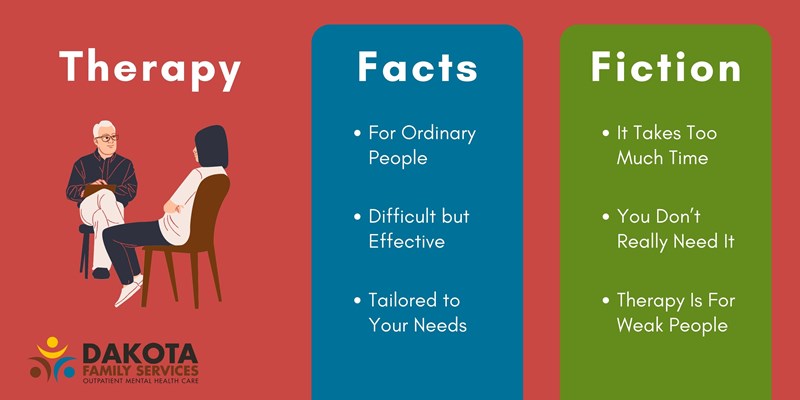Online vs. In-Person Mental Health Resources: How to Choose
Wiki Article
The Significance of Mental Wellness: a Deep Dive Into Counseling, Therapy, and Their Benefits
Psychological wellness considerably shapes private well-being, impacting behaviors, ideas, and emotions. Counseling and therapy act as necessary opportunities for healing and individual advancement. They use organized assistance, aiding individuals browse life's difficulties. Yet, numerous stay unaware of the specific sorts of treatment readily available and their one-of-a-kind benefits. Comprehending these elements is essential for any person taking into consideration expert mental health and wellness assistance. What follows may brighten courses to resilience and gratification that many ignore.Recognizing Mental Health And Wellness and Its Impact
Psychological health and wellness is frequently forgotten, it plays a crucial role in total wellness and day-to-day functioning - Marriage Counselling. It encompasses psychological, mental, and social elements that influence how individuals think, really feel, and act. A person's psychological health straight affects their capacity to handle anxiety, connect to others, and choose. Poor psychological wellness can result in numerous problems, including anxiousness, clinical depression, and problem in maintaining connections, every one of which can prevent specialist and individual growth.Furthermore, psychological health and wellness has far-reaching effects for physical health. Persistent stress and anxiety and neglected psychological conditions can contribute to different physical disorders, such as heart problem and damaged immune reactions. Conversely, positive mental health and wellness promotes resilience, allowing individuals to deal with life's obstacles properly. Recognizing psychological health and wellness's importance is crucial for fostering helpful settings that advertise psychological wellness, thus improving the lifestyle for communities and individuals alikeThe Various Kinds Of Therapy and Therapy
In the domain of psychological health and wellness, various therapy and treatment kinds deal with varied needs. Private counseling strategies concentrate on individual problems via one-on-one sessions, while group therapy characteristics foster shared experiences and support amongst participants. Understanding these methods is necessary for choosing the suitable treatment for various obstacles.Individual Therapy Methods
Numerous private therapy strategies exist, each developed to attend to details psychological wellness problems and accommodate varying customer requirements. Cognitive Behavior Modification (CBT) concentrates on determining and changing adverse idea patterns, while Psychodynamic Therapy explores subconscious procedures and past experiences. Humanistic Therapy emphasizes individual development and self-actualization, promoting a supportive environment. Social Treatment (IPT) targets connection problems and interaction patterns to improve psychological wellness. In addition, Acceptance and Commitment Therapy (ACT) encourages clients to approve their thoughts and feelings while committing to personal values. Each strategy supplies unique strategies and ideologies, enabling experts to customize their techniques to the person, therefore boosting the restorative experience and advertising psychological health and wellness recovery.Group Treatment Dynamics
Group therapy characteristics include numerous therapeutic approaches that take advantage of the power of social relationships and shared experiences. This form of therapy typically includes varied groups, cultivating a safe environment for individuals to express ideas and feelings. Trick types of group treatment include assistance groups, which offer psychological assistance; process-oriented groups, concentrating on social interactions; and psychoeducational teams, aimed at imparting expertise concerning mental health and wellness concerns. The dynamics within these groups can boost self-awareness, as participants commonly review their actions in connection with others. In addition, team therapy promotes a feeling of belonging, reducing sensations of isolation. With shared stories and collective problem-solving, individuals can develop coping techniques and obtain understandings, ultimately adding to private development and healing.The Function of Counseling in Mental Health
Therapy plays a necessary function in psychological wellness by offering various methods tailored to private demands. These approaches give professional guidance that can result in considerable improvements in psychological health. Recognizing the different kinds of therapy can assist individuals make educated choices regarding their mental health care.
Types of Therapy Strategies
While various counseling strategies exist, each deals unique methods and understandings right into mental health and wellness therapy - Mental Health Resources. Among one of the most prominent are cognitive-behavioral therapy (CBT), which concentrates on changing negative thought patterns; psychodynamic therapy, which explores subconscious processes and youth experiences; and humanistic methods, stressing individual growth and self-actualization. In addition, solution-focused short treatment prioritizes discovering services in the here and now instead of delving right into issues. Group therapy cultivates community and shared experiences, while household treatment addresses relational dynamics within domestic frameworks. Each approach satisfies various demands, lining up with individual choices, issues, and restorative objectives. Comprehending these methods helps clients make educated choices concerning their psychological health trip and advertises reliable treatment tailored to their special situationsAdvantages of Professional Advice
Many people profit from specialist guidance in managing their psychological wellness challenges. Therapy offers a secure room for clients to explore their ideas and feelings without judgment. This therapeutic environment cultivates self-awareness, permitting individuals to determine patterns in their behavior and create much healthier coping strategies. Specialist assistance also gives accessibility to evidence-based strategies that can relieve symptoms of anxiousness, anxiety, and other mental wellness issues. Therapists can assist in setting reasonable goals and offer assistance in accomplishing them, boosting overall wellness. The collective relationship in between therapist and client is important, as it promotes liability and motivates personal development. Inevitably, professional guidance plays an important duty in guiding psychological health journeys, leading to improved psychological resilience and life satisfaction.Advantages of Treatment: Recovery and Development
:max_bytes(150000):strip_icc()/VWH-MichelaButtignolCounselingFor-MentalHealth-4000x2700-35491a98e57746399614c4ef7f3833a1.png)
Exactly how to Choose the Right Therapist or Counselor
How can one navigate the usually overwhelming procedure of choosing the best specialist or therapist? Determining individual needs is important; individuals need to Couples Therapy consider their particular problems, whether partnership, anxiety, or anxiety difficulties. It is valuable to research study different healing techniques, such as cognitive-behavioral treatment or psychodynamic treatment, to discover a suitable match.Next, possible customers must seek referrals from relied on sources or utilize online directory sites. It is vital to evaluate specialists' credentials, including their education and learning, licensing, and locations of expertise. Scheduling first assessments can help gauge compatibility, enabling individuals to assess interaction designs and individual comfort.Finally, logistical factors, such as area, accessibility, and costs, need to also be thought about. By attentively considering these aspects, one can make an educated choice, inevitably cultivating a restorative connection that supports psychological health and individual development.Overcoming Preconception: Welcoming Mental Health And Wellness Assistance
While social attitudes toward psychological wellness have advanced, preconception still presents a substantial barrier for many seeking support. This stigma often shows up as mistaken beliefs surrounding mental disorder, leading people to feel shame or worry regarding their struggles. Lots of people wait to go after therapy or treatment because of stress over being judged or classified. Conquering this preconception is fundamental for cultivating a supportive environment where people can freely review their psychological health needs.Communities and companies play an essential role in this transformation by advertising recognition and education regarding mental health concerns. Initiatives that highlight personal stories can humanize these experiences, urging others to look for help without anxiety. As acceptance grows, people may really feel extra empowered to accept mental health support, acknowledging it as a vital element of total wellness. By dismantling preconception, culture can cultivate a society of understanding, empathy, and positive psychological healthcare.Methods for Preserving Mental Wellness Outside of Treatment
Treatment provides valuable assistance, maintaining mental wellness outside of sessions is equally important. People can apply numerous methods to sustain their psychological health. Routine exercise plays a vital role, as exercise promotes the launch of endorphins, which improve state of mind. In addition, a balanced diet rich in nutrients can significantly impact psychological security and energy levels.Practicing mindfulness and reflection assists people manage stress and create better self-awareness. Developing a constant sleep routine is also essential, as quality rest is crucial for cognitive feature and emotional regulation.Engaging in social activities cultivates connection and minimizes feelings of isolation. Seeking pastimes or interests can offer an innovative electrical outlet and increase self-worth. Lastly, practicing and establishing sensible goals self-compassion enables people to grow strength. By incorporating these methods into every day life, individuals can successfully support their mental wellness beyond therapy sessions.Often Asked Questions

Just How Can I Tell if I Need Therapy?

Establishing the requirement for therapy typically involves identifying persistent sensations of despair, stress and anxiety, or overwhelming stress and anxiety. If everyday functioning ends up being tough or coping devices fail, seeking specialist support may be a helpful progression.
What Should I Expect in My Very First Treatment Session?
In the first therapy session, individuals can anticipate an intro, discussion of their reasons for seeking assistance, and a summary of the therapist's approach, developing a structure for future discussions and establishing convenience in the restorative area.Are Online Treatment Procedure as Effective as In-Person Ones?
Research shows that online therapy sessions can be as effective as in-person ones. Aspects such as the therapist's qualifications, client engagement, and the healing relationship greatly influence end results, no matter the tool made use of.Can Treatment Assist With Connection Issues?
Treatment can assist individuals in attending to connection concerns by offering devices for communication, recognizing feelings, and resolving disputes. Marriage Counselling. It promotes healthier characteristics and urges personal growth, ultimately fostering more powerful, more fulfilling connections between partnersFor How Long Does Treatment Commonly Last?
Treatment duration differs considerably based upon private needs and goals. Typically, sessions might last from a few weeks to numerous months, with some people taking part in recurring therapy to resolve long-lasting worries and personal growth. Cognitive Behavior Treatment (CBT) focuses on determining and changing negative idea patterns, while Psychodynamic Treatment checks out unconscious procedures and previous experiences. Trick types of group therapy consist of support teams, which supply emotional assistance; process-oriented groups, focusing on interpersonal communications; and psychoeducational teams, aimed at presenting knowledge regarding psychological wellness issues. Amongst the most prominent are cognitive-behavioral treatment (CBT), which concentrates on altering negative thought patterns; psychodynamic treatment, which checks out unconscious processes and youth experiences; and humanistic methods, emphasizing individual development and self-actualization. Team treatment promotes community and shared experiences, while family members therapy addresses relational dynamics within domestic frameworks. It is useful to research various therapeutic approaches, such as cognitive-behavioral treatment or psychodynamic therapy, to find an appropriate match.Next, prospective clients ought to seek references from trusted resources or make use of online directory sites.Report this wiki page